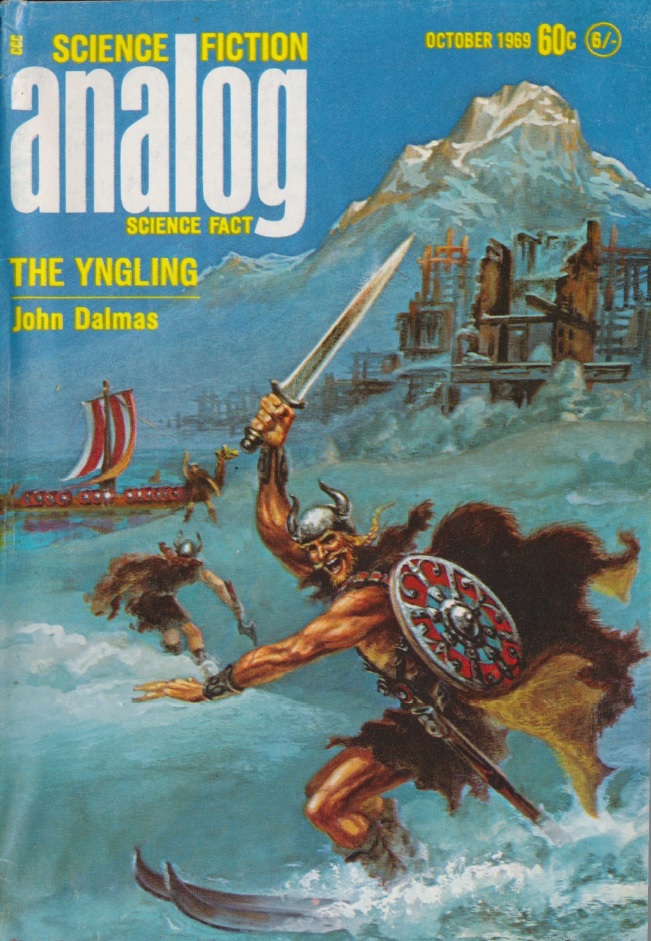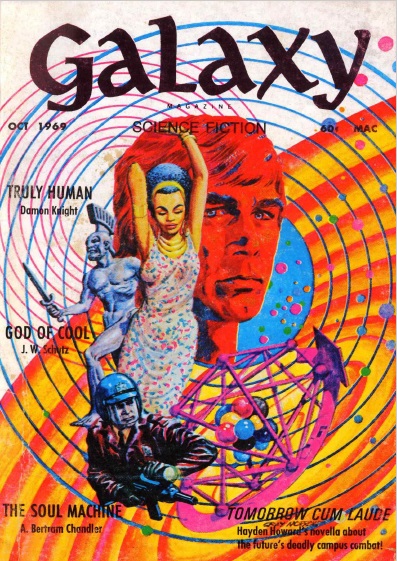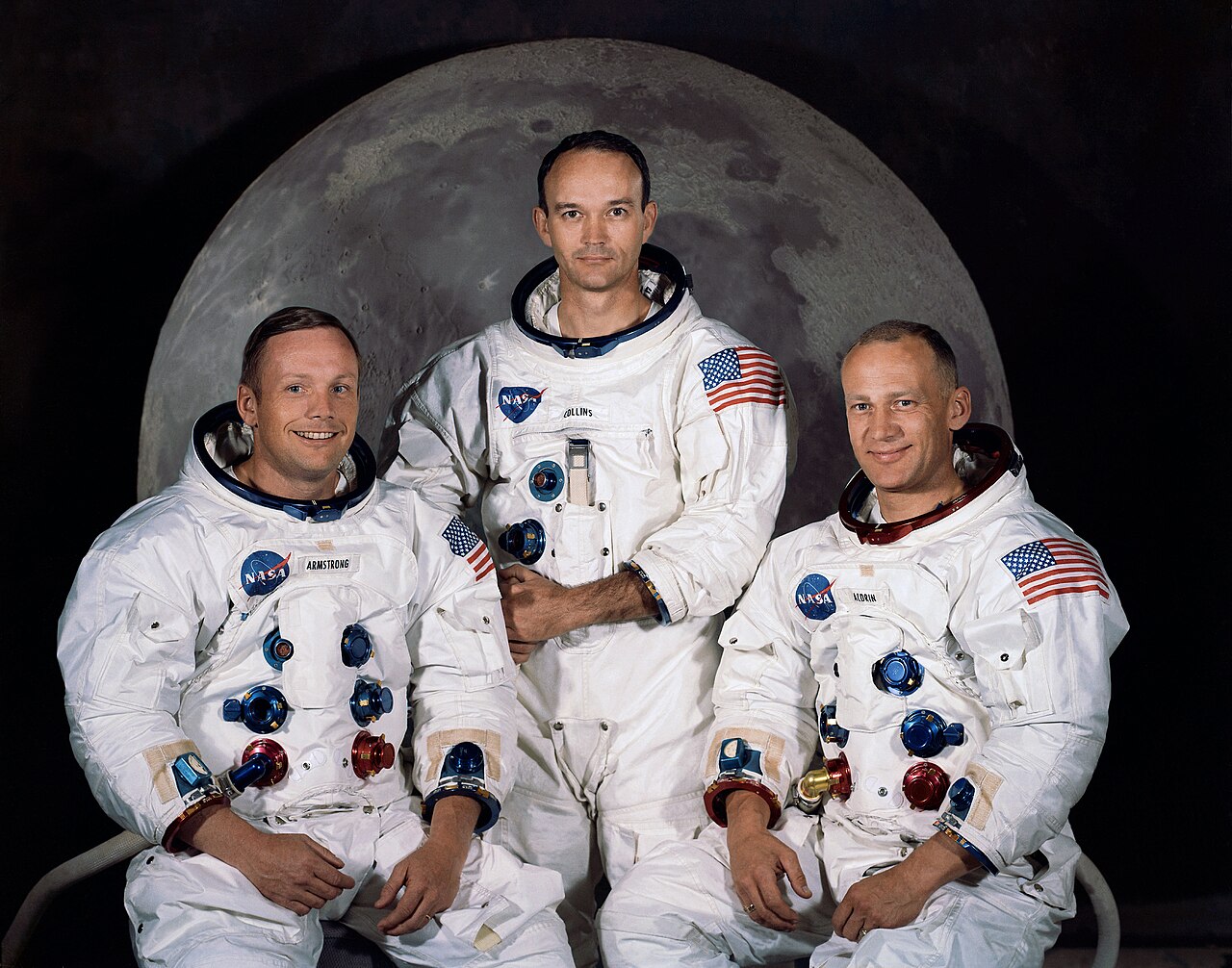
by Gideon Marcus
Options in Space
Just two months ago, men set foot on the Moon. It was the culmination of 12 years of American progress in space, nine years of manned flights.
And yet, it is also just the beginning. This nation has built the infrastructure to begin a new era of space exploration and exploitation. As of this moment, the National Air and Space Administration (NASA) has no formal plans for human spaceflight beyond the flight of Apollo 20 sometime in 1973, and a somewhat inchoate, 3-man space station project—this latter to utilize a converted Saturn rocket upper stage.

In order to turn further dreams into reality, President Nixon has created a "Space Task Group", headed by Vice President Agnew and comprising luminaries like NASA chief Thomas Paine and Secretary of Defense Melvin Laird, to map what the next decade in outer space will look like. They submitted their report, "The post-Apollo space program: directions for the future", on September 15.
.jpg)
The 29-page report outlines an ambitious set of proposals, even the most modest of which still sets lofty goals. In short, the options are:
- Land a man on Mars by 1980; orbit a multi-person lunar station; orbit a 50-person space station in Earth orbit; develop a reusable spacecraft to shuttle personnel and supplies to and from these stations;
- The same, but with a deferred Mars landing; and,
- The same, but with no Mars landing.

With regard to the station, it appears that it won't be a all-of-a-piece spinning wheel as seen in 2001 or the old Collier's articles from the early '50s. Instead, NASA will mass-produce station modules, which can be put together like Tinkertoys.
There are three options presented for military spaceflight, as well, but these are not fleshed out proposals, merely budget amount suggestions based on how hot or cool international tensions are over the next decade.
Only time will tell which of these options, or which portions of these plans will be implemented and when. It is one thing for the Vice President to boost space (a consistent tradition since 1961!) It remains to be seen if Dick Nixon will commit this nation to a grand, interplanetary goal, in the vein of his erstwhile opponent, Jack Kennedy.
Options in Print
As the STG offers up a number of options for the future of human spaceflight, so Analog editor Campbell offers up a number of possible futures set further beyond in the latest issue of Analog.

by Kelly Freas
Continue reading [Sep. 30, 1969] Decisions, decision (October 1969 Analog)

![[Sep. 30, 1969] Decisions, decision (October 1969 <i>Analog</i>)](https://galacticjourney.org/wp-content/uploads/2024/09/690930cover-651x372.jpg)
![[September 22, 1969] Unsmoothed curves (October 1969 <i>Fantasy and Science Fiction</i>)](https://galacticjourney.org/wp-content/uploads/2024/09/690922fsfcover-658x372.jpg)


![[September 12, 1969] Earthshaking (October 1969 <i>Galaxy</i>)](https://galacticjourney.org/wp-content/uploads/2024/09/690912galaxycover-397x372.jpg)


![[September 6, 1969] A hot time in the old town (Worldcon in St. Louis!)](https://galacticjourney.org/wp-content/uploads/2024/08/690904book-603x372.jpg)

![[August 31, 1969] Over (and under) the Moon (September 1969 <i>Analog</i>)](https://galacticjourney.org/wp-content/uploads/2024/08/690831analogcover-659x372.jpg)

![[August 24, 1969] Flying and dragging (September 1969 <i>Fantasy and Science Fiction</i>)](https://galacticjourney.org/wp-content/uploads/2024/08/690820fsfcover-409x372.jpg)



![[August 8, 1969] Two by Four (Mariners 6 and 7 go to Mars)](https://galacticjourney.org/wp-content/uploads/2024/08/690808approach6-672x372.jpg)

![[July 31, 1969] Stranger than fiction (August 1969 <i>Analog</i>)](https://galacticjourney.org/wp-content/uploads/2024/07/690731analogcover-672x372.jpg)




![[July 20, 1969] Today's the day! (August 1969 <i>Fantasy and Science Fiction</i>)](https://galacticjourney.org/wp-content/uploads/2024/07/690720guide-672x372.jpg)


![[July 8, 1969] Nowhere fast (August 1969 <i>Galaxy</i>)](https://galacticjourney.org/wp-content/uploads/2024/07/690708galaxycover-450x372.jpg)

